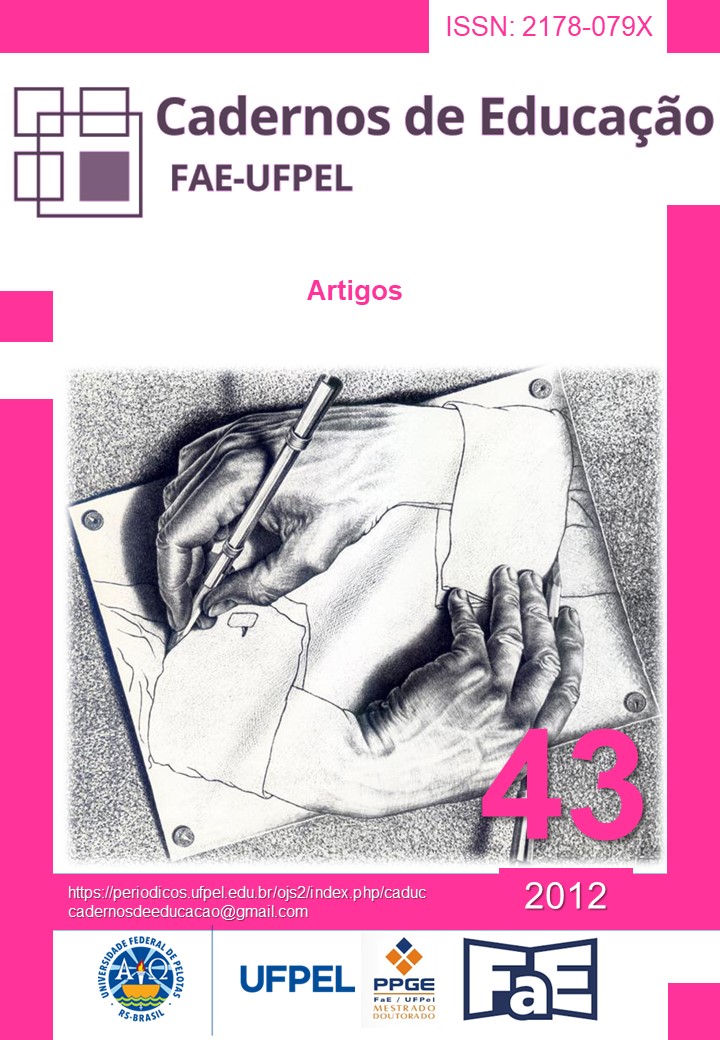Interculturalidade, diferença e diversidade: políticas educativas no Brasil e na Colômbia
Resumo
Pretendemos, através deste artigo, enfocar algumas das práticas discursivas que constituem o repertório das políticas públicas em torno da diversidade no Brasil e na Colômbia e suas possíveis repercussões no campo educativo. Como uma primeira aproximação, e no marco das orientações multiculturais, buscamos explorar as representações discursivas de como opera o reconhecimento da diversidade cultural e étnica nos países em questão. Interessa-nos questionar os problemas e os perigos que a possibilidade de afirmação, pela imposição de um conceito de diversidade estigmatizado e gerenciador dos conflitos identitários, possa como processo e no seu conjunto, significar. Buscamos, também, estabelecer as imagens expressas da diversidade cultural e como se in/visibilizam os estereótipos que tendem a representar algumas características dos grupos culturais e, particularmente, os relacionados com o caráter positivo, atribuídos a si mesma, pela elite branco-mestiça em contraste com o negativo que é atribuído aos grupos subalternos. Igualmente ressaltamos como o regime de representações dominante tende a essencializar e naturalizar as identidades culturais. Neste âmbito e no contexto que a interculturalidade na América latina se faz como categoria em construção, concluímos no sentido da afirmação das políticas públicas na educação do Brasil, da Colômbia como um reflexo de práticas discursivas que transitam por entre o elogio da diferença e a neutralização dos aspectos interculturais.Palavras-Chave: Políticas educativas. Diversidade. Interculturalidade.Interculturality, diversity and difference: educational policies in Brazil and ColombiaAbstractWe intend, through this article, focusing on some of the discursive practices that constitute the repertoire of public policies around diversity in Brazil and Colombia and their repercussions in the educational field. As a first approximation, and in the context of multicultural guidelines, we explore the discursive representations of how it operates as the recognition of cultural and ethnic diversity in the countries concerned. We are interested in questioning the problems and dangers that the possibility of affirmation, by imposing a concept of diversity and manager of stigmatized identity conflicts, and can process as a whole, mean. We also seek to establish the images of cultural diversity and expressed as in /visible stereotypes that tend to represent some characteristics of cultural groups, and particularly those related to positive character, attributed to itself, the white-mestizo elite in contrast to the negative that is assigned to the subordinate groups. Also highlight how dominant representations of the regime tends to essentialize and naturalize cultural identities. In this scope and in the context that interculturality in Latin America is done as a category under construction, completed towards the affirmation of public policies in education in Brazil, Colombia as a reflection of discursive practices that pass by the difference between praise and neutralizing interculturalaspects.Key words: Educational Policies. Diversity. Interculturality.
Como Citar
Bussoletti, D., & Yànez, C. (1). Interculturalidade, diferença e diversidade: políticas educativas no Brasil e na Colômbia. Cadernos De Educação, (43). https://doi.org/10.15210/caduc.v0i43.2193
Edição
Seção
Artigos





